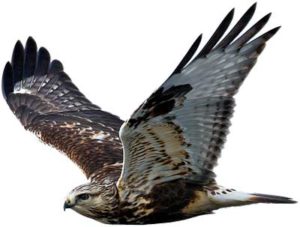 The Orange Tree management office has been notified that once again there have been incidents of aggressive hawks diving at and attacking residents in the Orange Tree Community. As this is a common occurrence during their nesting season, it is important to observe safety precautions throughout the spring and summer. The Florida Fish and Wildlife Conservation Commission advises us that these incidents occur almost exclusively during nesting season (spring and summer). From their site: “Birds of prey, also called raptors, include hawks, eagles, falcons and owls. Each spring and summer, the Florida Fish and Wildlife Conservation Commission (FWC) receives reports of raptors diving at people. These incidents, which are usually caused by hawks, have happened in both urban and suburban areas. Most of these events occur during the nesting season and near an active nest where there are chicks or eggs. The raptors dive at people who come too close to the nest. The birds view those people as threats to the nest and the babies. In many cases, the birds dive at people but don’t make contact. However, there have been injuries from these birds when they do make contact. Reports show that the birds may dive at people as far as 150 feet away from their nests. All Florida raptors are protected under the federal Migratory Bird Treaty Act and under Florida law. This means the birds themselves, their nests, and their eggs are protected by federal and state law.” The Florida Fish and Wildlife Conservation Commission suggests that residents living or walking near nesting sites observe these precautions:
The Orange Tree management office has been notified that once again there have been incidents of aggressive hawks diving at and attacking residents in the Orange Tree Community. As this is a common occurrence during their nesting season, it is important to observe safety precautions throughout the spring and summer. The Florida Fish and Wildlife Conservation Commission advises us that these incidents occur almost exclusively during nesting season (spring and summer). From their site: “Birds of prey, also called raptors, include hawks, eagles, falcons and owls. Each spring and summer, the Florida Fish and Wildlife Conservation Commission (FWC) receives reports of raptors diving at people. These incidents, which are usually caused by hawks, have happened in both urban and suburban areas. Most of these events occur during the nesting season and near an active nest where there are chicks or eggs. The raptors dive at people who come too close to the nest. The birds view those people as threats to the nest and the babies. In many cases, the birds dive at people but don’t make contact. However, there have been injuries from these birds when they do make contact. Reports show that the birds may dive at people as far as 150 feet away from their nests. All Florida raptors are protected under the federal Migratory Bird Treaty Act and under Florida law. This means the birds themselves, their nests, and their eggs are protected by federal and state law.” The Florida Fish and Wildlife Conservation Commission suggests that residents living or walking near nesting sites observe these precautions:
- Avoid the area near the nest, if possible. If you must go through the area, move quickly but carry an open umbrella and don’t run.
- Temporarily put up a tarp or canopy tent in that area (if it’s near your home) to obstruct the birds’ view of people.
- Put on a sturdy hat and then draw a large pair of “eyes” that you can attach to the back of the hat. Birds may be less likely to dive if they think they’re being watched.
For more information or to receive email updates from the Florida Fish and Wildlife Commission, visit their site here: http://myfwc.com/



